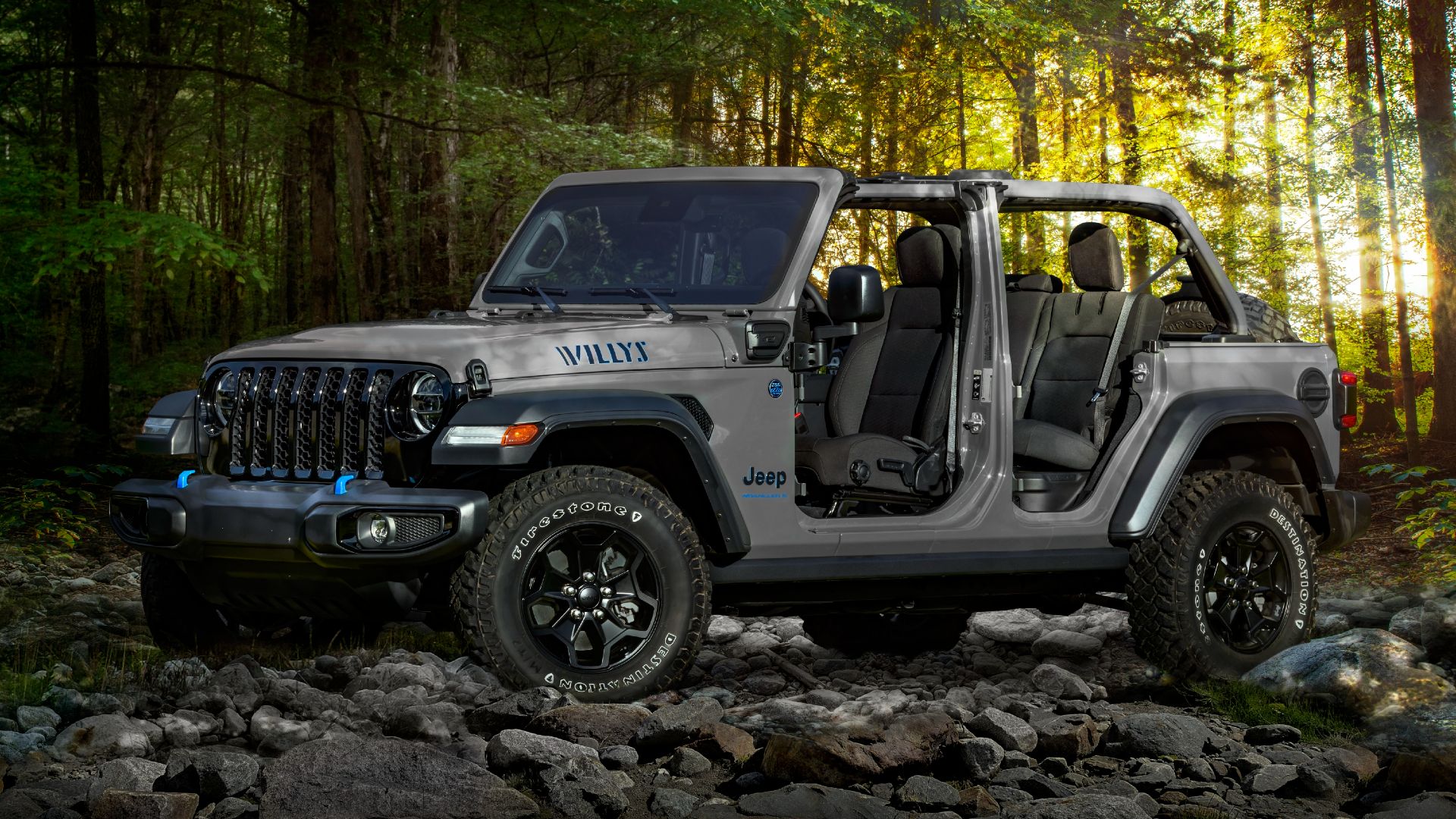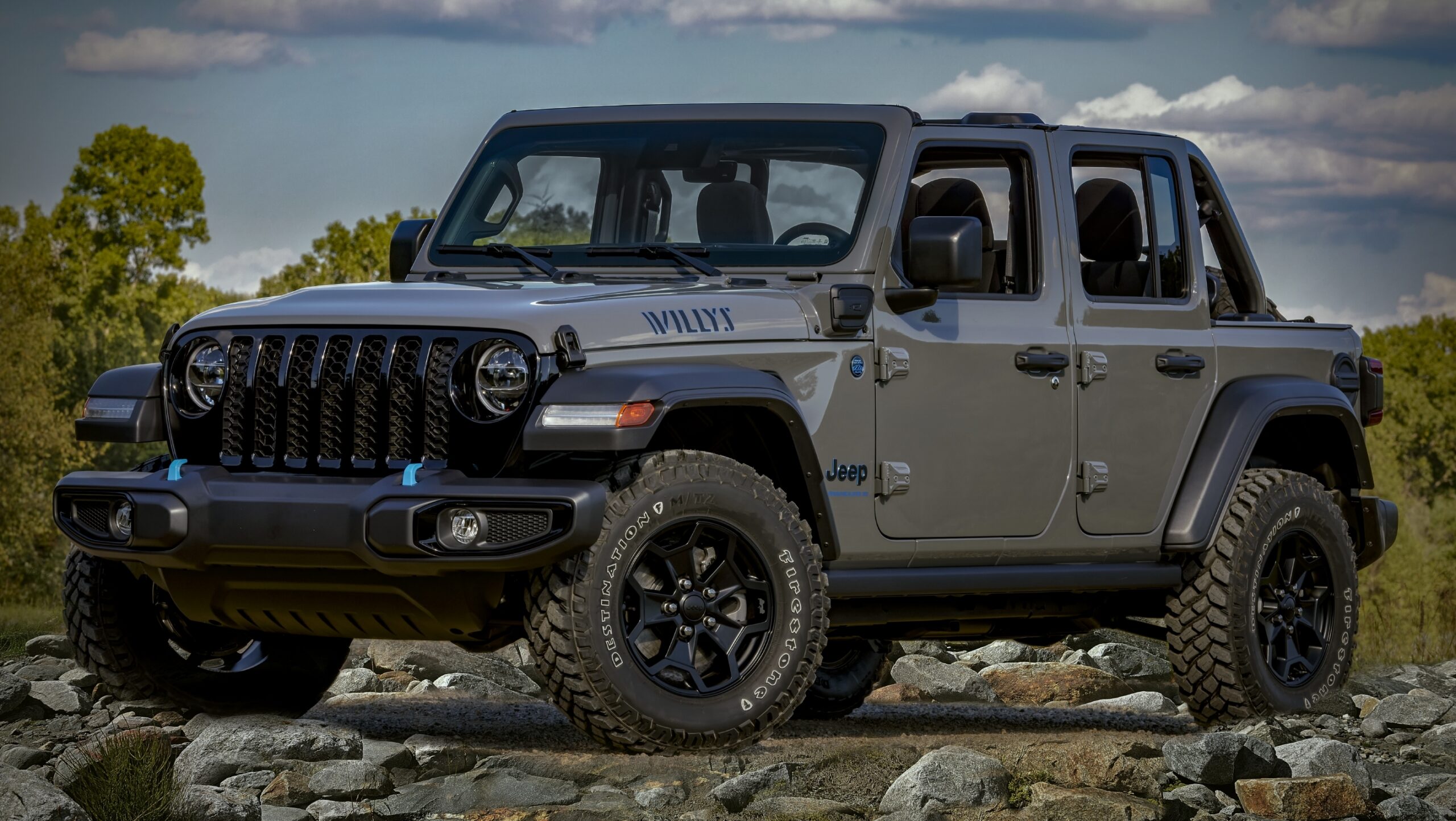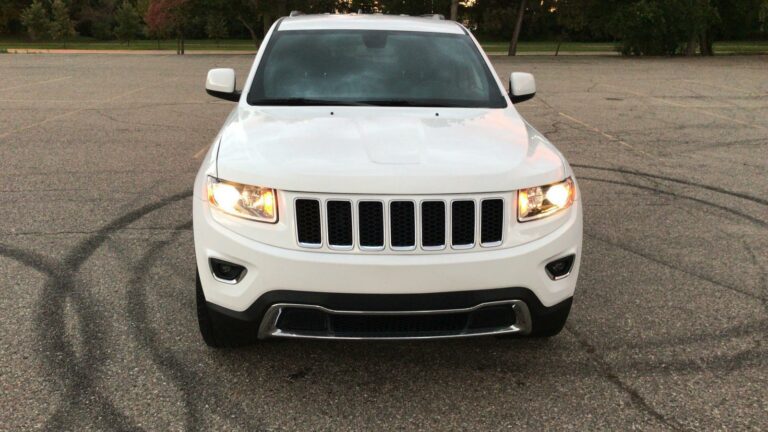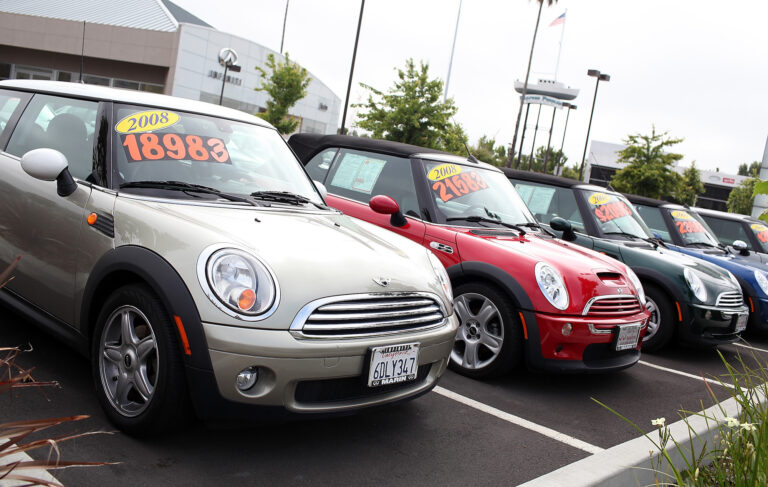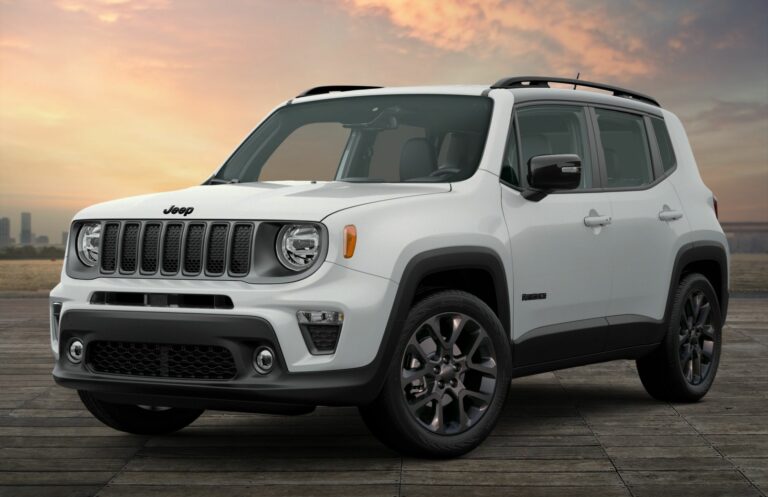Jeep Grand Cherokee Starter: The Heartbeat of Your Adventure
Jeep Grand Cherokee Starter: The Heartbeat of Your Adventure jeeps.truckstrend.com
The roar of a Jeep Grand Cherokee’s engine firing to life is a sound synonymous with adventure, capability, and the promise of the open road. But what if that familiar growl is replaced by a worrying click, a strained whir, or absolute silence? Often, the culprit lies with a critical, yet frequently overlooked, component: the starter. More than just a simple part, the starter is the essential electro-mechanical device that initiates the entire combustion process, transforming stored electrical energy from your battery into the mechanical force needed to crank the engine. Without a functioning starter, your formidable Grand Cherokee becomes an inert steel sculpture.
Understanding the intricacies of your Jeep Grand Cherokee’s starter – how it works, what can go wrong, and how to address issues – is not just for mechanics; it’s vital knowledge for any owner. This comprehensive guide will delve deep into the world of the Jeep Grand Cherokee starter, empowering you with the information to diagnose, maintain, and ensure your vehicle is always ready for its next journey.
Jeep Grand Cherokee Starter: The Heartbeat of Your Adventure
What is a Car Starter and How Does it Work in Your Grand Cherokee?
At its core, a car starter is a powerful electric motor designed for one specific, crucial task: to turn the engine over fast enough to start the combustion cycle. In your Jeep Grand Cherokee, this process begins the moment you turn the ignition key or press the start button.
The starter assembly typically consists of a few key components:
- Electric Motor: This is the primary component, a robust DC motor that spins at high RPMs.
- Solenoid: An electromagnetic switch mounted on the starter. When activated, it serves two functions: it completes the high-current circuit from the battery to the starter motor, and it pushes the pinion gear forward.
- Pinion Gear (Bendix Gear): A small gear attached to the starter motor shaft.
- Overrunning Clutch (One-Way Clutch): Integrated with the pinion gear, this mechanism allows the pinion to disengage once the engine starts, preventing damage from the rapidly spinning flywheel.
![]()
The Starting Sequence:
- Ignition Activation: When you turn the key or push the button, a small electrical current flows from the battery to the starter solenoid’s control circuit.
- Solenoid Engagement: The energized solenoid creates a magnetic field, which pulls a plunger. This plunger does two things simultaneously:

- It closes a set of heavy-duty contacts, allowing the large current from the battery to flow directly to the starter motor.
- It pushes the pinion gear forward along the starter shaft.
- Flywheel Engagement: The extended pinion gear meshes with the much larger ring gear located on the engine’s flywheel (or flexplate, for automatics).
- Engine Cranking: With the high-current circuit closed, the powerful electric motor spins the pinion gear, which in turn rotates the flywheel, cranking the engine.
- Disengagement: Once the engine starts and reaches a self-sustaining RPM, the overrunning clutch in the pinion gear disengages, and a spring retracts the pinion gear from the flywheel, preventing the starter from being over-spun by the running engine.
![]()
This entire sequence happens in a matter of milliseconds, making it seem like a single, instantaneous event. The starter’s design ensures maximum torque for brief periods, precisely what’s needed to overcome the initial resistance of a cold engine.
Common Symptoms of a Failing Jeep Grand Cherokee Starter
Recognizing the early warning signs of a failing starter can save you from being stranded. Pay attention to these common symptoms:
- Clicking Sound Only: When you turn the key, you hear a single click or a rapid series of clicks, but the engine doesn’t crank. This often indicates a faulty solenoid (not engaging the main contacts) or insufficient power reaching the starter (often due to a low battery or corroded connections).
- No Sound, No Crank: You turn the key, and absolutely nothing happens – no clicks, no cranking, just silence. This could point to a completely dead starter, a broken circuit, or a severely drained battery.
- Slow or Sluggish Cranking: The engine cranks very slowly, as if the battery is dying, but you’ve confirmed the battery is good. This suggests the starter motor itself is weak, drawing too much current, or has internal resistance.
- Grinding Noise: If you hear a harsh grinding sound when attempting to start, it usually means the starter’s pinion gear isn’t properly engaging with the flywheel’s ring gear, or the gears themselves are worn or damaged. This can also damage the flywheel.
- Smoke or Burning Smell: A burning smell, often accompanied by smoke, indicates that the starter motor is overheating due to excessive current draw or internal shorts. Stop trying to start the vehicle immediately to prevent further damage or a fire.
- Intermittent Starting: The vehicle starts sometimes, but not others. This can be particularly frustrating and often points to a worn starter motor that works only when it’s cool or in a specific position, or loose/corroded wiring that makes inconsistent contact.
Diagnosing Starter Problems in Your Jeep Grand Cherokee
Before you jump to replacing the starter, it’s crucial to rule out other potential issues, especially battery problems, which often mimic starter failure.
- Check the Battery First: This is the most common misdiagnosis.
- Headlight Test: Turn on your headlights. If they are dim or don’t come on at all, it’s likely a battery issue. If they are bright and don’t dim when you try to start, the battery is probably fine, pointing more towards the starter.
- Battery Voltage Test: Use a multimeter to check the battery’s voltage. A fully charged battery should read around 12.6 volts. If it’s significantly lower, charge or replace the battery.
- Jump Start Attempt: If a jump start fails to get the engine cranking, and you’re certain the donor vehicle’s battery and cables are good, then it strongly suggests a starter problem.
- Inspect Battery Cables and Connections: Loose, corroded, or damaged battery terminals and cables can prevent sufficient current from reaching the starter. Clean any corrosion and ensure connections are tight at both the battery and the starter motor.
- Tap the Starter (Temporary Diagnostic): For some starters, a few gentle taps with a hammer (or a wrench handle) can sometimes temporarily free up a stuck solenoid or brushes. If the car then starts, it confirms the starter is failing and needs replacement. Caution: Ensure the vehicle is in park/neutral and the parking brake is engaged before attempting this.
- Voltage Drop Test (Advanced): A professional mechanic can perform a voltage drop test on the starter circuit to identify excessive resistance in the wiring or connections, which can prevent the starter from receiving adequate power.
- Professional Diagnosis: If you’re unsure, or the issue persists, a qualified mechanic has specialized diagnostic tools to accurately pinpoint the problem, including testing the starter motor directly.
Types of Starters for Jeep Grand Cherokee
When it comes to replacing your Grand Cherokee’s starter, you’ll generally encounter a few categories:
- Original Equipment Manufacturer (OEM) Starters: These are identical to the starter originally installed in your Grand Cherokee by the factory. They offer guaranteed fit, function, and quality, but typically come with the highest price tag.
- Aftermarket Starters: Produced by third-party manufacturers (e.g., Bosch, Denso, ACDelco, Remy). Quality can vary widely. Reputable brands often offer performance comparable to OEM at a lower cost, while cheaper generic options might have a shorter lifespan. Always choose a well-known brand with good reviews.
- Remanufactured/Rebuilt Starters: These are OEM or aftermarket starters that have been disassembled, cleaned, inspected, and had worn components (like brushes, solenoids, bearings) replaced. They are a more environmentally friendly and often cost-effective option. Quality depends heavily on the rebuilder’s standards. Ensure they come with a good warranty.
Choosing the Right One: For peace of mind and longevity, an OEM or high-quality aftermarket starter from a reputable brand is often the best choice. Remanufactured starters can be a good value if sourced from a trusted supplier with a solid warranty.
Replacing Your Jeep Grand Cherokee Starter: A Step-by-Step Overview
Replacing a starter on a Jeep Grand Cherokee can range from moderately challenging to quite difficult, depending on the specific model year and engine (some are more accessible than others). While a detailed guide for every JGC variant is beyond this scope, here’s a general overview of the process:
- Safety First: This is paramount.
- Park the vehicle on a flat, stable surface.
- Engage the parking brake.
- Disconnect the negative (black) terminal of the battery first, then the positive (red) terminal. This prevents accidental shorts and electrical shock.
- Allow the engine to cool down if it’s been running.
- Use jack stands if lifting the vehicle. Never rely solely on a jack.
- Locate the Starter: The starter is usually mounted on the transmission bell housing, often on the passenger side of the engine block. Its exact position varies by Grand Cherokee generation and engine type. You may need to remove other components (like skid plates or exhaust sections) for access.
- Remove Electrical Connections: There will be a large battery cable (positive, typically 12V) and one or more smaller wires (for the solenoid control circuit). Note their positions or take photos before disconnecting them. Use appropriate wrenches/sockets.
- Unbolt the Starter: The starter is typically held in place by two or three bolts that secure it to the transmission bell housing. These bolts can be tight and sometimes difficult to access.
- Remove the Old Starter: Once unbolted, carefully maneuver the old starter out of its mounting position. It can be heavy, so be prepared.
- Install the New Starter:
- Compare the new starter to the old one to ensure they are identical.
- Position the new starter in place and hand-tighten the mounting bolts.
- Torque the mounting bolts to the manufacturer’s specifications.
- Reconnect the electrical wires, ensuring they are clean and tight. Reconnect the solenoid wire(s) first, then the main battery cable.
- Reconnect Battery and Test: Reconnect the positive battery cable first, then the negative. Double-check all connections. Start the vehicle and listen for proper cranking. Check for any warning lights.
Practical Advice: For many Grand Cherokee owners, especially those with limited mechanical experience or specialized tools, having a professional mechanic perform the starter replacement is highly recommended. The job can be physically demanding and requires specific torque settings for fasteners.
Maintenance Tips to Prolong Starter Life
While starters are generally robust, a few practices can help extend their lifespan:
- Maintain a Healthy Battery: A weak battery forces the starter to work harder, drawing excessive current and leading to premature wear. Regularly test your battery and replace it when it shows signs of weakening.
- Avoid Excessive Cranking: If your engine doesn’t start after a few seconds of cranking, stop and let the starter cool down for 30 seconds to a minute before trying again. Continuous cranking can overheat and damage the starter.
- Regular Electrical System Checks: Periodically inspect battery terminals and starter connections for corrosion or looseness. Clean them as needed.
- Address Other Engine Issues Promptly: If your engine is hard to start due to issues like fouled spark plugs, a clogged fuel filter, or sensor problems, fix these immediately. A hard-to-start engine puts more strain on the starter.
Potential Challenges and Solutions
- Corroded Terminals/Cables: Solution: Disconnect the battery (negative first!), use a wire brush and baking soda solution to clean terminals and cable ends. Replace severely corroded cables.
- Seized Bolts: Solution: Apply penetrating oil (e.g., WD-40, PB Blaster) and let it soak. Use a breaker bar or impact wrench if available. Be careful not to strip the bolt heads.
- Difficulty Accessing Starter: Solution: Consult your Grand Cherokee’s service manual or online forums for specific instructions for your model year/engine. You might need to remove specific components like intake manifolds, exhaust pipes, or catalytic converters. A professional mechanic often has specialized tools for tight spaces.
- Wiring Issues (Beyond Connections): Solution: If the problem isn’t the starter itself, battery, or connections, it could be a faulty ignition switch, a neutral safety switch, or a relay. These typically require advanced electrical troubleshooting or professional diagnosis.
Jeep Grand Cherokee Starter Price Table (Estimated)
Please note: Prices are highly variable based on your specific Grand Cherokee model year, engine type, brand (OEM vs. aftermarket), and the labor rates in your region. These figures are estimates for reference only. Always get specific quotes for your vehicle.
| Starter Type | Estimated Part Cost (USD) | Estimated Labor Cost (USD) | Total Estimated Cost (USD) | Notes |
|---|---|---|---|---|
| Aftermarket (Basic) | $80 – $150 | $150 – $400 | $230 – $550 | Good for older models or budget-conscious repairs. Quality varies. |
| Aftermarket (Premium) | $150 – $300 | $150 – $450 | $300 – $750 | Reputable brands (Bosch, Denso). Often comparable to OEM. |
| Remanufactured | $100 – $250 | $150 – $400 | $250 – $650 | Cost-effective, environmentally friendly. Check warranty. |
| OEM (Mopar) | $250 – $500+ | $150 – $500+ | $400 – $1000+ | Original quality, guaranteed fit. Highest cost. |
Labor costs can be significantly higher for models with difficult starter access (e.g., some V8 engines, or those requiring exhaust removal).
Frequently Asked Questions (FAQ) about Jeep Grand Cherokee Starters
Q1: How long do Jeep Grand Cherokee starters typically last?
A1: With proper maintenance and normal use, a starter can last anywhere from 100,000 to 150,000 miles, or even the lifetime of the vehicle. However, factors like frequent short trips (more starts), extreme temperatures, and a consistently weak battery can shorten its lifespan.
Q2: Can a bad battery mimic a bad starter?
A2: Absolutely, and it’s a very common misdiagnosis. A weak or dead battery will often result in a clicking sound or no cranking at all, very similar to a bad starter. Always test your battery first before assuming the starter is the problem.
Q3: Is it hard to replace a starter on a Jeep Grand Cherokee myself?
A3: The difficulty varies significantly by model year and engine. Some Grand Cherokees have relatively accessible starters, while others require removing exhaust components, intake manifolds, or working in very tight spaces, making it a challenging DIY job that may be better left to a professional.
Q4: What’s the difference between a single click and rapid clicking when trying to start?
A4: A single click often means the starter solenoid is engaging but isn’t sending power to the starter motor, or there isn’t enough power to pull the main contacts closed (often a very weak battery or bad cable). Rapid clicking usually indicates a severely discharged battery; there’s just enough power to rapidly activate and deactivate the solenoid, but not enough to crank the engine.
Q5: Can I jump-start a Jeep Grand Cherokee with a bad starter?
A5: No. If the starter motor itself is faulty and not engaging or spinning, jump-starting will not help. Jump-starting only provides external power to your vehicle’s electrical system; it doesn’t fix a mechanical or electrical failure within the starter unit.
Q6: Are there specific aftermarket brands recommended for Jeep Grand Cherokee starters?
A6: Brands like Bosch, Denso, Remy, and ACDelco (for GM engines, but some components crossover) are generally well-regarded in the aftermarket for their quality and reliability. Always check reviews specific to your Grand Cherokee model.
Conclusion
The starter may be a small component in the grand scheme of your Jeep Grand Cherokee, but its role is unequivocally critical. It is the silent workhorse that initiates every journey, big or small. Understanding its function, recognizing the signs of failure, and knowing your options for repair or replacement are key to maintaining the reliability and adventurous spirit of your vehicle.
Whether you choose to tackle a starter replacement yourself or enlist the expertise of a professional, timely diagnosis and a quality repair will ensure that the heartbeat of your Grand Cherokee remains strong, ready to ignite your next adventure with that familiar, reassuring roar. Don’t let a faulty starter sideline your exploration; keep your Jeep Grand Cherokee ready for whatever lies ahead.
